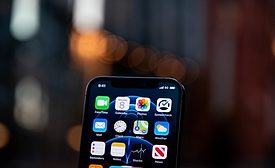Home » risk management
Articles Tagged with ''risk management''
COVID-19 Heroes
Sanofi’s North America security team drives COVID-19 response efforts
From the onset of the pandemic, Sanofi’s North America Security Operations & Technology team has worked across the enterprise to provide critical in-house applications and communications to departments and leaders, as well as be on the frontlines of on-location response efforts, ensuring operational continuity, as well as the safety and security of the company’s staff and assets.
May 10, 2021
COVID-19 Heroes
Boeing values information as the backbone to pandemic response
Taking a project management approach to its comprehensive COVID-19 pandemic response, Boeing’s Security & Fire Protection and Health Services business units placed collaboration, communication and actionable data at the forefront to make unified, informed decisions across the enterprise.
May 7, 2021
Sign-up to receive top management & result-driven techniques in the industry.
Join over 20,000+ industry leaders who receive our premium content.
SIGN UP TODAY!Copyright ©2024. All Rights Reserved BNP Media.
Design, CMS, Hosting & Web Development :: ePublishing











